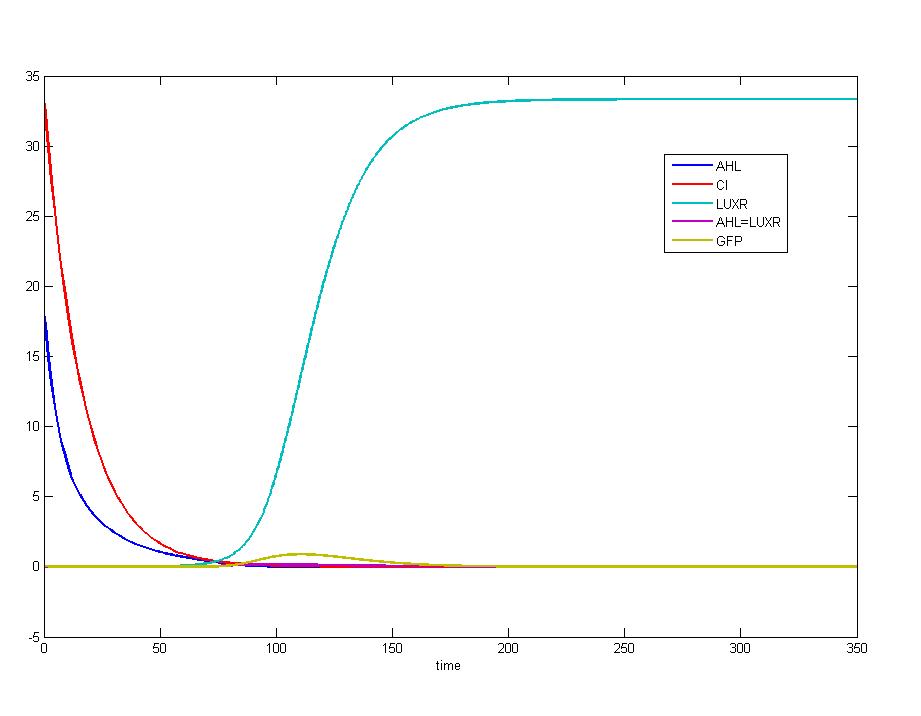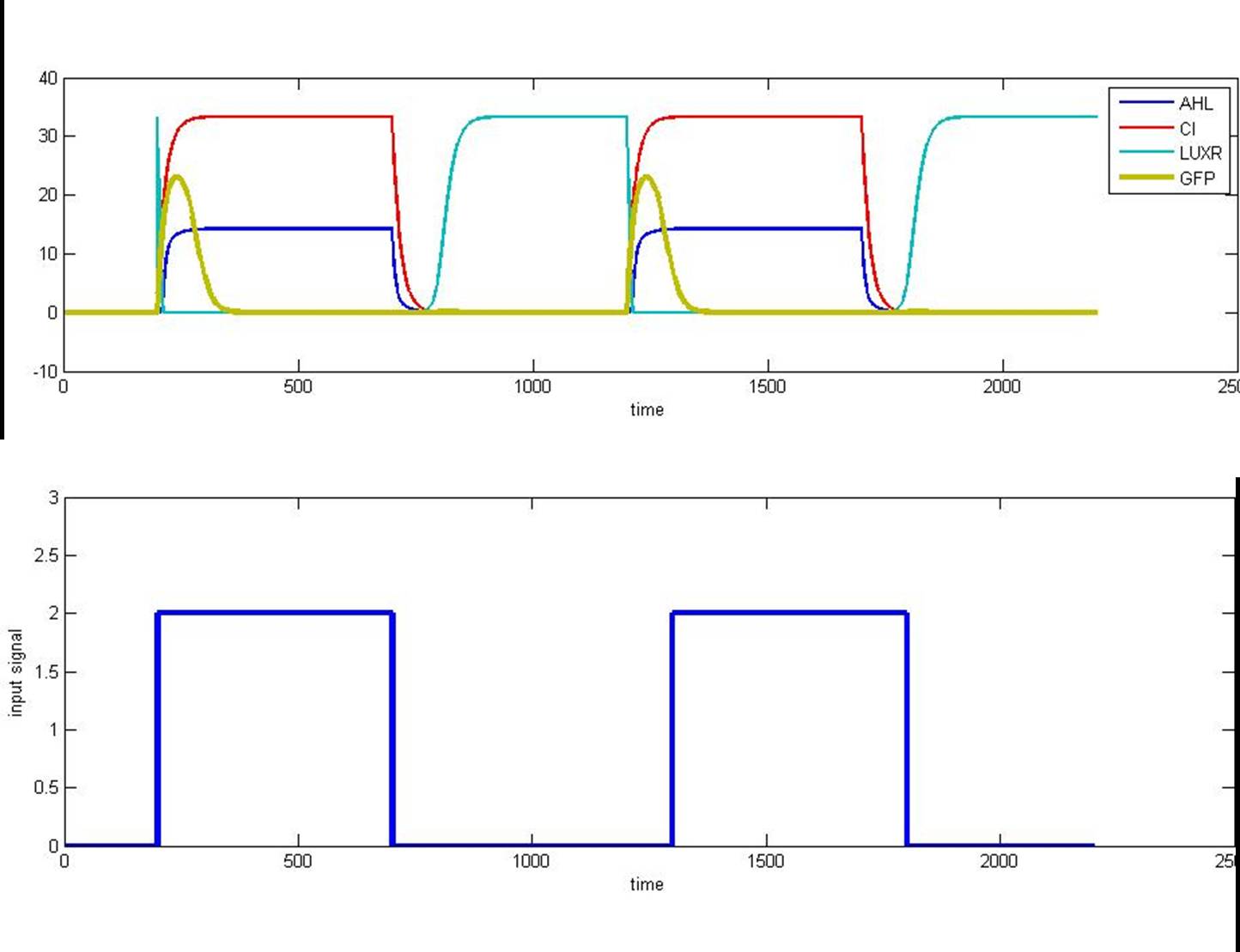Tianjin/FLIP-FLOP/Model2
From 2007.igem.org
(Difference between revisions)
Lovecarrot (Talk | contribs) |
Sunlovedie (Talk | contribs) |
||
| Line 1: | Line 1: | ||
{| | {| | ||
| - | + | Supposing that the degradation rate of AHL increases to three times faster than the original one, | |
| - | + | we simulate the changing tendency of contents of various parameters on our computer. The output | |
| - | signal would only | + | signal would only appear when the input signal switches from 0 to 1. The reason is that with the addition |
of IPTG, AHL are produced very quickly which bind to undegraded LuxR protein to initialize the production of | of IPTG, AHL are produced very quickly which bind to undegraded LuxR protein to initialize the production of | ||
GFP. But with the ceasing of IPTG, AHL are decomposed in a very short time leaving little AHL to bind LuxR protein and only a low peak of GFP could | GFP. But with the ceasing of IPTG, AHL are decomposed in a very short time leaving little AHL to bind LuxR protein and only a low peak of GFP could | ||

